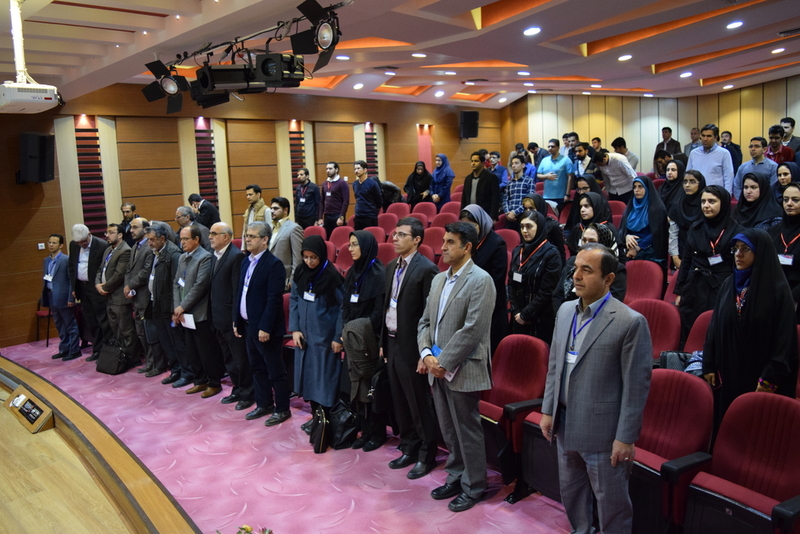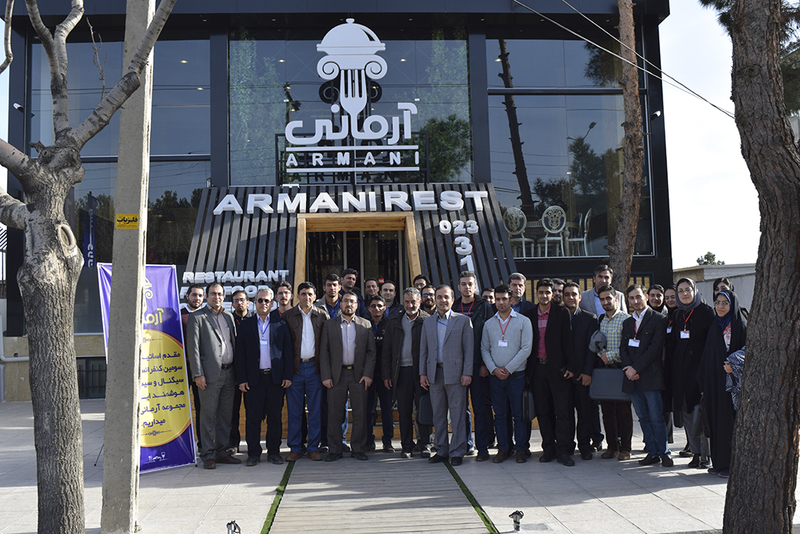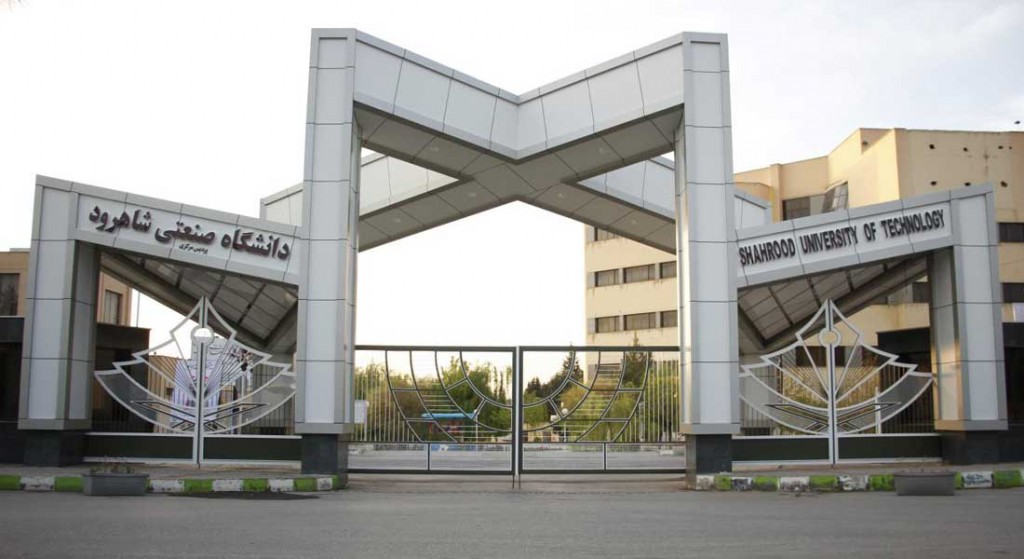صفحه اصلی
با توجه به اهمیت رو به رشد سیستم های پردازش دیجیتال و کاربردهای روزافزون آن ها در زمینههای مختلف علمی و صنعتی، قطب علمی سامانه های پردازش دیجیتال ایران اقدام به برگزاری کنفرانس پردازش سیگنال و سیستم های هوشمند ایران نموده است. این کنفرانس زمینه ای برای همفکری و تبادل دانش بیشتر بین محققین و پژوهشگران علمی و فنی در موضوع پردازش سیگنال و سیستم های هوشمند ایجاد می کند.
این کنفرانس در تاریخ ۲۹ و ۳۰ آذر ۱۳۹۶ در دانشگاه صنعتی شاهرود برگزار می شود.
زبان رسمی کنفرانس، فارسی است. مقالات به زبان انگلیسی درصورت پذیرفته شدن، در سایت IEEE Xplore نمایه می شوند.
ورود به پرتال ارسال مقاله
مهمانسرای اقامتی با قیمت مناسب جهت رفاه مهمانان عزیز، فراهم شده است.
تور گردشگری جنگل ابر، کویر نوردی، بسطام و ... در ایام برگزاری کنفرانس دایر است.
ثبت نام و ارسال نسخه نهایی: ۴ تا ۹ آذر ماه
توسعه یافته مقالات منتخب، به مجله های علمی پژوهشی زیر معرفی خواهند شد.
نتایج نهایی پذیرش مقالات ارسال شد.
پرداخت سایر هزینه های مرتبط با کنفرانس
این کنفرانس در تاریخ ۲۹ و ۳۰ آذر ۱۳۹۶ در دانشگاه صنعتی شاهرود برگزار می شود.
زبان رسمی کنفرانس، فارسی است. مقالات به زبان انگلیسی درصورت پذیرفته شدن، در سایت IEEE Xplore نمایه می شوند.
کتابچه مقالات فارسی
از طریق این لینک
قابل دریافت است.
محل برگزاری کنفرانس:
پردیس فنی و مهندسی دانشگاه صنعتی شاهرود، ساختمان کتابخانه مرکزی.
موقعیت بر روی نقشه
محل اسکان شرکت کنندگانی که اتاق رزرو کرده اند: پردیس مرکزی دانشگاه صنعتی شاهرود (جنب میدان هفت تیر)، مهمانسرای دانشگاه.
در ضمن اسامی شرکت کنندگانی که اتاق رزرو کرده اند به نگهبانی درب ورودی ارائه شده است.
محل اسکان شرکت کنندگانی که اتاق رزرو کرده اند: پردیس مرکزی دانشگاه صنعتی شاهرود (جنب میدان هفت تیر)، مهمانسرای دانشگاه.
در ضمن اسامی شرکت کنندگانی که اتاق رزرو کرده اند به نگهبانی درب ورودی ارائه شده است.
تور یکروزه همراه با صبحانه گرم، ناهار گرم، پذیرایی میوه و قهوه، بیمه و مجوزهای قانونی گشت در روز های سه شنبه تا پنج شنبه
(با کسر ۲۰ هزار تومان به عنوان تخفیف) به ازای هر نفر ۸۰ هزار تومان برگزار می شود.
اطلاعات بیشتر و شماره های تماس
نویسندگان گرامی، لطفا
فایل پاورپوینت ارائه مقالات
خود را حداکثر تا دوشنبه ۲۷ آذر
در سایت آپلود نمایید.
فراخوان مقاله
ورود به پرتال ارسال مقاله
مهمانسرای اقامتی با قیمت مناسب جهت رفاه مهمانان عزیز، فراهم شده است.
تور گردشگری جنگل ابر، کویر نوردی، بسطام و ... در ایام برگزاری کنفرانس دایر است.
ثبت نام و ارسال نسخه نهایی: ۴ تا ۹ آذر ماه
توسعه یافته مقالات منتخب، به مجله های علمی پژوهشی زیر معرفی خواهند شد.
نتایج نهایی پذیرش مقالات ارسال شد.
پرداخت سایر هزینه های مرتبط با کنفرانس
First Keynote Speaker: Prof. Ching Y. Suen

Director - CENPARMI, Centre for Pattern Recognition & AI, Concordia Univ.
http://www.cenparmi.concordia.ca/CENPARMI/Suen//index.html
Section Editor and Emeritus Editor-in-Chief, Pattern Recognition, Elsevier
https://ees.elsevier.com/pr/
Editor - Book series on Language Processing, Pattern Recognition, and
Intelligent systems, World Scientific Publishing Co.
http://www.worldscientific.com/worldscibooks/10.1142/9968
General Chair - Int. Conf. on Pattern Recognition and AI:
http://www.icprai2018.com
http://www.cenparmi.concordia.ca/CENPARMI/Suen//index.html
Section Editor and Emeritus Editor-in-Chief, Pattern Recognition, Elsevier
https://ees.elsevier.com/pr/
Editor - Book series on Language Processing, Pattern Recognition, and
Intelligent systems, World Scientific Publishing Co.
http://www.worldscientific.com/worldscibooks/10.1142/9968
General Chair - Int. Conf. on Pattern Recognition and AI:
http://www.icprai2018.com
Second Keynote Speaker: Dr. Naushad Mamode Khan

Talk Title: Bivariate extension of Integer-valued Autoregressive Processes Under NonStationarity and the challenges
In various studies, time series of count responses are recorded for different correlated variables which
may be marginally dispersed relative to their means and different series may exhibit different levels of
over-dispersion. In addition, such series may be commonly influenced by one or more dynamic
explanatory variables. Analysis of such type of bivariate time series data is quite challenging and the
challenge mounts up further if these time series are non-stationary.
The existing bivariate time series models are not suitable to analyze such type of series since these models have been developed under time-independent covariates and can only model count responses with same level of dispersion. Thus, a major limitation of these models is that they cannot cater for series that exhibit over- dispersion mutually at different levels and fail to model non-stationary moment conditions, which in fact limit their applications in many practical real-life situations. To overcome these limitations, some novel bivariate models that allow for different levels of dispersion as well as non-stationarity are required. Specifically, first-order bivariate integer-valued autoregressive (BINAR(1)) models under Negative Binomial (NB) innovations are constructed, tested and applied to model the data arising in real-life situations. Models are constructed in two ways: Firstly assuming that the inter-relation between the series is induced by the innovation series only which ultimately yields a constrained BINAR(1) model under each distributional assumption and secondly, in an unconstrained setup, where the cross-correlation is influenced by relating the current series observation with previous-lagged observation of the other series and vice-versa.
Non-stationary nature of the series is taken in account under each model. Another important contribution is in developing a novel estimation procedure for estimating the parameters of the proposed BINAR(1) models. The Conditional Maximum Likelihood Estimation (CMLE), Feasible Generalized Least Squares (FGLS) and Method of Moments (MoM) are some of the popular techniques used to estimate the model parameters in this domain where CMLE, as expected, yields the most efficient estimates. Nevertheless, the CMLE is computationally intensive to implement and requires numerical approximations. Moreover, in the complex unconstrained BINAR(1) non-stationary processes, it is difficult to identify the marginal distributions of the counting series which limits the application of likelihood-based methods. Hence, a new estimation approach based on the Generalized Quasi-Likelihood (GQL) is proposed. This approach requires only the correct specification of the mean score and the robust auto-covariance structure.
The existing bivariate time series models are not suitable to analyze such type of series since these models have been developed under time-independent covariates and can only model count responses with same level of dispersion. Thus, a major limitation of these models is that they cannot cater for series that exhibit over- dispersion mutually at different levels and fail to model non-stationary moment conditions, which in fact limit their applications in many practical real-life situations. To overcome these limitations, some novel bivariate models that allow for different levels of dispersion as well as non-stationarity are required. Specifically, first-order bivariate integer-valued autoregressive (BINAR(1)) models under Negative Binomial (NB) innovations are constructed, tested and applied to model the data arising in real-life situations. Models are constructed in two ways: Firstly assuming that the inter-relation between the series is induced by the innovation series only which ultimately yields a constrained BINAR(1) model under each distributional assumption and secondly, in an unconstrained setup, where the cross-correlation is influenced by relating the current series observation with previous-lagged observation of the other series and vice-versa.
Non-stationary nature of the series is taken in account under each model. Another important contribution is in developing a novel estimation procedure for estimating the parameters of the proposed BINAR(1) models. The Conditional Maximum Likelihood Estimation (CMLE), Feasible Generalized Least Squares (FGLS) and Method of Moments (MoM) are some of the popular techniques used to estimate the model parameters in this domain where CMLE, as expected, yields the most efficient estimates. Nevertheless, the CMLE is computationally intensive to implement and requires numerical approximations. Moreover, in the complex unconstrained BINAR(1) non-stationary processes, it is difficult to identify the marginal distributions of the counting series which limits the application of likelihood-based methods. Hence, a new estimation approach based on the Generalized Quasi-Likelihood (GQL) is proposed. This approach requires only the correct specification of the mean score and the robust auto-covariance structure.
تاریخ های مهم
مهلت ارسال مقاله:
۲۹ شهریور ۱۳۹۶
تا ۳۰ مهر تمدید شد
اعلام نتایج داوری مقاله ها: نتایج نهایی ارسال شد.
ثبت نام و ارسال نسخه نهایی: ۴ تا ۹ آذر ماه
تاریخ برگزاری کنفرانس: ۲۹ و ۳۰ آذر ۱۳۹۶
اعلام نتایج داوری مقاله ها: نتایج نهایی ارسال شد.
ثبت نام و ارسال نسخه نهایی: ۴ تا ۹ آذر ماه
تاریخ برگزاری کنفرانس: ۲۹ و ۳۰ آذر ۱۳۹۶
ارتباط با ما
آدرس: شاهرود، دانشگاه صنعتی شاهرود، دانشکده مهندسی کامپیوتر و فناوری اطلاعات.
ایمیل: icspis@shahroodut.ac.ir
ایمیل: icspis@shahroodut.ac.ir















